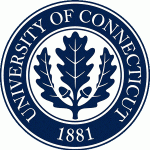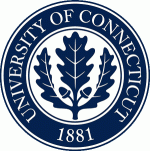Graduate students Andrew Ju and Sungoh Kwon have received the Department of Economics’ ‘Best Third-Year Paper’ awards for 2015-2016.
From the abstract of Andrew’s paper State Collective Bargaining Laws and Public-Private Sector Wage Differentials:
In recent years states across the country have considered restricting or eliminating the collective bargaining rights of public employees, thus sparking a national debate over the compensation of public sector workers. In this paper I contribute evidence to this debate by examining the effects of state collective bargaining laws on public-private sector wage differentials. Using data from the 2000 to 2014 CPS Merged Outgoing Rotation Group (MORG) and a variety of identification strategies, I find that in states without mandatory collective bargaining laws state and local government workers earn approximately 7 percent less than their private sector counterparts. In contrast, in states with mandatory collective bargaining laws, state and local government workers earn approximately the same as their private sector counterparts.
I also find that state collective bargaining laws play an important role in determining the level of fringe benefits: local government employees in mandatory collective bargaining states have significantly higher probabilities of obtaining an employer-sponsored health insurance or pension plan.
From the abstract of Sungoh’s paper Does Public School Spending Raise Intergenerational Mobility?: Evidence from U.S. School Finance Reforms:
This study prov ides the first quasi-experimental evidence on the relationship between public school spending and intergenerational mobility (IGM). Using a plausibly exogenous variation in school spending induced by U.S. court-mandated school finance reforms and county-by-cohort level measures of IGM, I found no evidence that the increase in public school spending raises future income rank of disadvantaged children in the national distribution, while there is evidence of a slight increase in the rank of advantaged children. When it comes to college attendance, I found that children similarly benefit from additional school spending regardless of family backgrounds. I discuss some possible explanations on the results.
ides the first quasi-experimental evidence on the relationship between public school spending and intergenerational mobility (IGM). Using a plausibly exogenous variation in school spending induced by U.S. court-mandated school finance reforms and county-by-cohort level measures of IGM, I found no evidence that the increase in public school spending raises future income rank of disadvantaged children in the national distribution, while there is evidence of a slight increase in the rank of advantaged children. When it comes to college attendance, I found that children similarly benefit from additional school spending regardless of family backgrounds. I discuss some possible explanations on the results.
Congratulations, Andrew and Sungoh!





